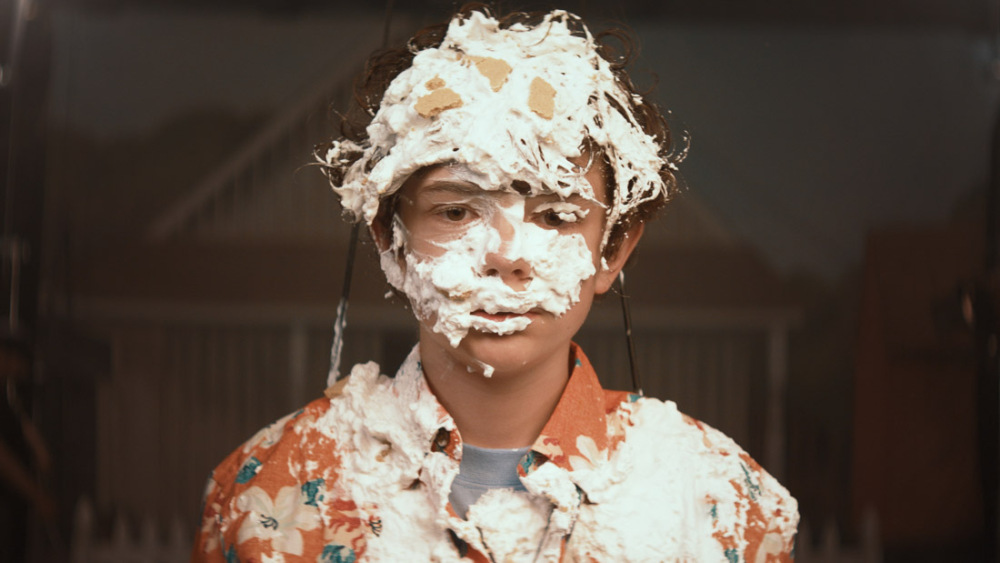Whether the story of Shia LaBeouf’s life in film was worthy of its own film has never been a question. The real question was always: Who would tell it? And, who would play his strange and volatile father? Clearly, we just needed to wait for LaBeouf to do all of it himself. The result is Honey Boy, now available on Amazon Prime. It’s loosely based on the actor’s early years as a child star and the experiences that subsequently derailed his life and career. LaBeouf himself wrote the script while he was in rehab. It was intended as a kind of self-therapy.
It’s no surprise LaBeouf chose the comforting form of the movie script to tell his story. But he never meant to make a product out of it. Still, when LaBeouf showed the work to Israeli filmmaker and creative collaborator Alma Har’el, she knew it was the right project for both of them.
We’ll get to LaBeouf’s portrayal of his own father in a moment. First, let’s talk about the version of himself he created for Honey Boy. Two actors depict LaBeouf as the character Otis Lort. Actors Noah Jupe and Lucas Hedges are asked to do a lot of tough work in this film. Otis has to be innocent and worldly. In other words, he has to be young and trusting enough to suffer the scars that will later bring him down.
And he has to be sturdy enough to eventually survive them. Jupe and Hedges share those duties. In every scene, they must each show both sides of that coin. And they must do so while serving as the separate physical representations of cause and effect in a single life. They succeed remarkably. Especially Jupe, who negotiates the complex emotional minefield of LaBeouf’s fictionalized upbringing with seasoned grace. Nothing can ruin a movie quicker than a bad kid performance. And few things make a movie more special than a truly good one. With Jupe, we definitely get the latter.
LaBeouf’s turn as Otis’ dad James is a marvel. Half Cajun renaissance man, half angry drunk, Lort is the kind of dad we’ve seen in movies before. But the knowledge that he is an avatar for LaBeouf’s real-life father is constantly fascinating. And a little harrowing. If writing this script was a therapeutic necessity for LaBeouf, taking on the role of his own dad was a huge personal risk. A desire not to become that man counterintuitively forced LaBeouf to inhabit him for a short time. We are fortunate to observe this courage.
James Lort is the sort of occasionally lovable brigand that many actors would have overplayed. But LaBeouf keeps him in range and never lets him be too big for the moment. He’s also careful not to let the lovability become more than occasional. The bad, childhood-wrecking stuff needs space as well. Not too much, but enough. LaBeouf gets it all right. It could not have been easy for him.
Honey Boy is a daring film. Director Har’el’s very stylish and effective direction is especially noteworthy for a sophomore effort. But Honey Boy also works because it’s self-aware in the best possible ways. It’s a movie about movies, which Hollywood loves. It’s an often-gut-wrenching portrait of the artist as a young man, which other artists love. And it’s a page ripped from a famous person’s diary of sins, which we all secretly love. All told, Honey Boy has a very big heart.
Watching that heart break is painful. But also cathartic.






